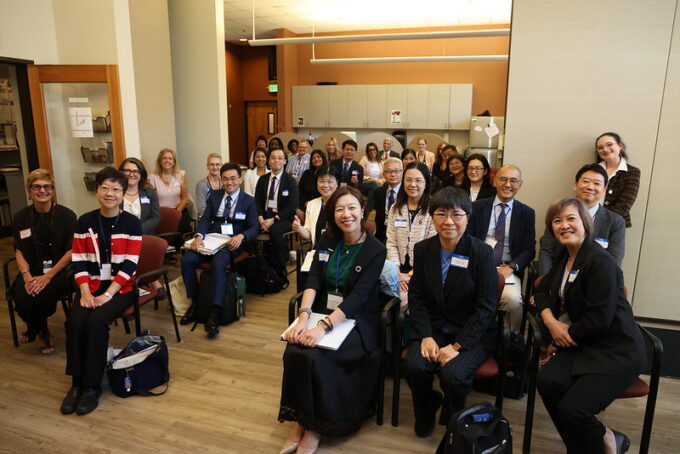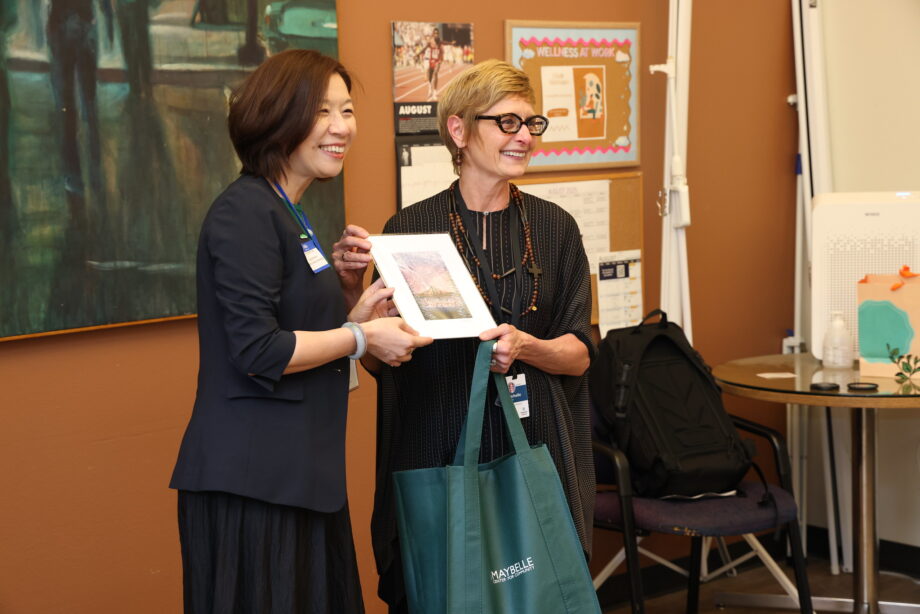We were honored to be invited by Oregon state agencies to host an international exchange with a delegation of health officials, social welfare leaders, and hospital administrators from Taiwan. Their visit to Portland focused on innovative models of care—and Maybelle Center was recognized as a leader in this work.
The delegation came to learn how our unique investment in social health and our Medicaid-funded assisted living facility are advancing community-based care. Oregon leaders set the tone at the opening session, highlighting the urgent need for approaches that strengthen both health and belonging.
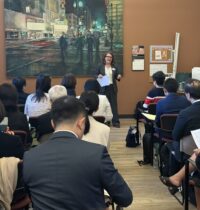
A representative from Governor Tina Kotek’s office, Rachel Currans-Henry, reminded the group of the urgency of the work: “It’s embarrassing that we are the richest country in the world, and we have a homelessness problem.”
“Maybelle Center is what happens when a community stands up,” said Fariborz Pakseresht, Director of the Oregon Department of Human Services, who will retire in October after leading the state’s largest agency.
From there, the conversation moved fluidly between Oregon and Taiwan’s experiences. Taiwanese delegates described national efforts to prevent chronic illnesses and improve health by providing more than 50,000 community centers for a country physically smaller than the state of Oregon, but with 5x Oregon’s population. Their latest health measure is experimenting with AI “nudges” to help residents maintain a healthy weight.
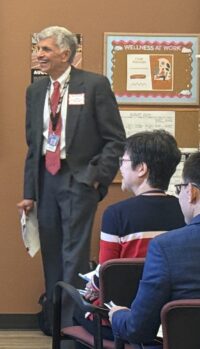
Maybelle Center Executive Director, Michelle Meyer, explained how we provide support to our neighbors across the housing spectrum, from independent living to supportive housing in our assisted living facility. Delegates were especially interested in how Maybelle Center’s assisted living facility provides people-centered care for Portlanders who are chronically houseless and often considered some of Portland’s “hard-to-house” residents.
Responding to a question about what that term means, Sam Swindells, our Director of Behavioral Services, explained: “We’re talking about neighbors with severe and persistent mental illness, which leads to increased aggressive behavior.”
“In Multnomah County, we don’t have enough behavioral-health and direct care specialists,” noted Fariborz Pakseresht. That reality underscores why Maybelle Center’s work is so critical. Yet, retaining staff remains a challenge for us—even with stronger onboarding and training—given the prevalence of complex behavioral health needs. Finding the best ways to support and sustain our workforce is still an ongoing effort.
The Taiwanese delegates deeply resonated with this challenge, with one noting, “Social workers also need support. That’s a problem we have.” This sparked a discussion on the importance of addressing secondary trauma across helping professions—from social workers in Taiwan to staff at Maybelle Center in Portland.
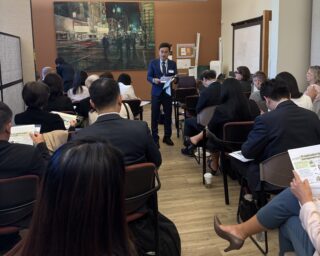
Amid the serious discussions, lighter moments surfaced: one psychiatrist from Taiwan laughed that he was glad to find Voodoo Doughnut still in Portland, because his kids loved it on a past visit.
The global gathering closed with a reminder of the lasting impact of Maybelle’s work. Cheryl Miller, the Community Engagement & Strategic Partnership Officer with the Oregon Department of Human Services, reflected on why Maybelle has stayed with her:
“I attended a Maybelle fundraising event, and it was absolutely amazing. I never forgot it.”
That kind of lasting connection is no accident. With your support, everything we do at Maybelle Center is designed to build belonging—whether that’s bringing neighbors together through our Neighborhood Program, providing compassionate care at Macdonald Residence, or creating moments of joy and inspiration at our fundraisers.
Even across an ocean, the visit from Taiwan underscored a truth we see every day: people-centered care changes lives. Your partnership helps create communities where every person—no matter their stage of life or health challenge—can belong and thrive.
